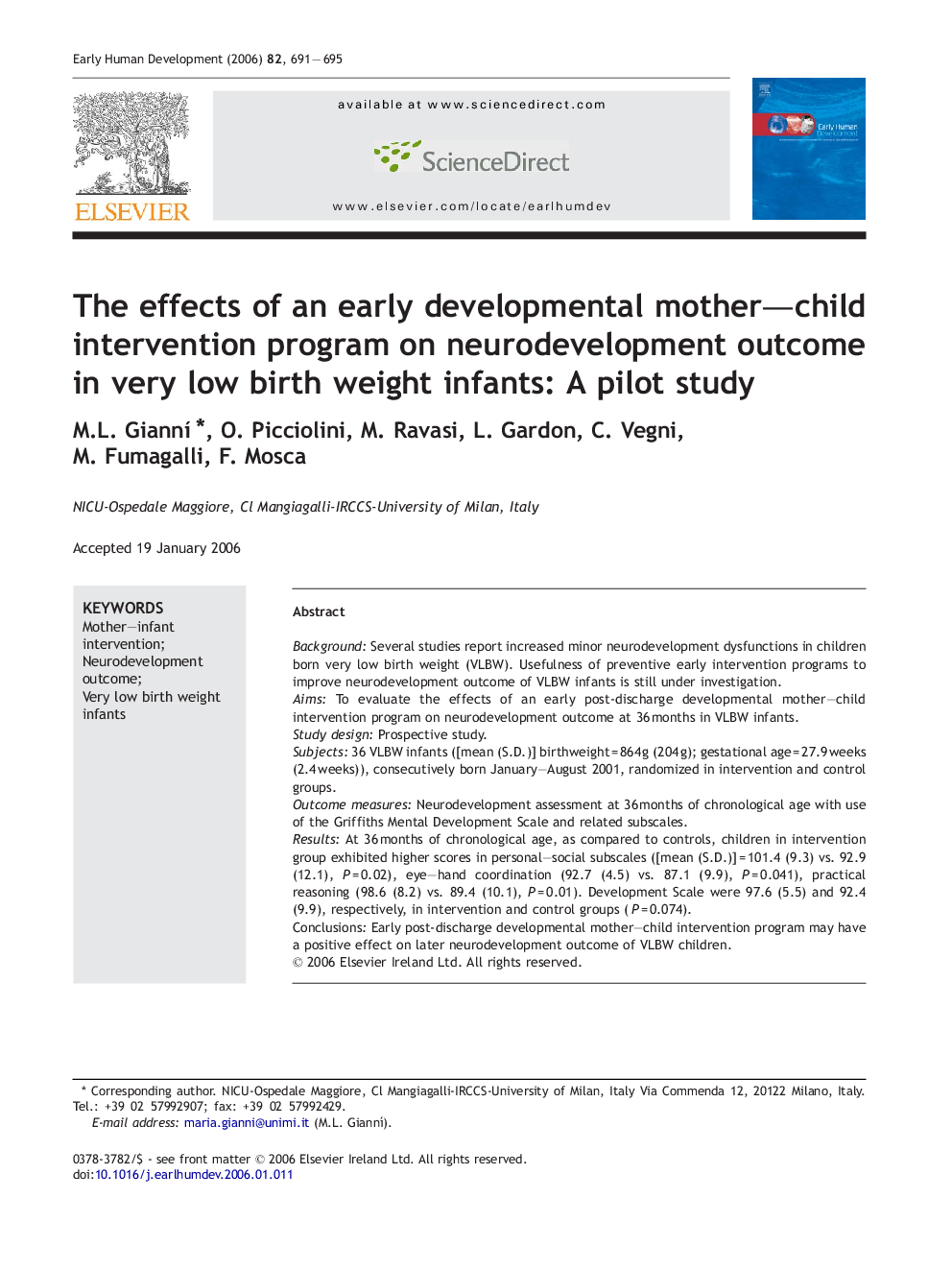| Article ID | Journal | Published Year | Pages | File Type |
|---|---|---|---|---|
| 3918361 | Early Human Development | 2006 | 5 Pages |
BackgroundSeveral studies report increased minor neurodevelopment dysfunctions in children born very low birth weight (VLBW). Usefulness of preventive early intervention programs to improve neurodevelopment outcome of VLBW infants is still under investigation.AimsTo evaluate the effects of an early post-discharge developmental mother–child intervention program on neurodevelopment outcome at 36 months in VLBW infants.Study designProspective study.Subjects36 VLBW infants ([mean (S.D.)] birthweight = 864 g (204 g); gestational age = 27.9 weeks (2.4 weeks)), consecutively born January–August 2001, randomized in intervention and control groups.Outcome measuresNeurodevelopment assessment at 36 months of chronological age with use of the Griffiths Mental Development Scale and related subscales.ResultsAt 36 months of chronological age, as compared to controls, children in intervention group exhibited higher scores in personal–social subscales ([mean (S.D.)] = 101.4 (9.3) vs. 92.9 (12.1), P = 0.02), eye–hand coordination (92.7 (4.5) vs. 87.1 (9.9), P = 0.041), practical reasoning (98.6 (8.2) vs. 89.4 (10.1), P = 0.01). Development Scale were 97.6 (5.5) and 92.4 (9.9), respectively, in intervention and control groups (P = 0.074).ConclusionsEarly post-discharge developmental mother–child intervention program may have a positive effect on later neurodevelopment outcome of VLBW children.
